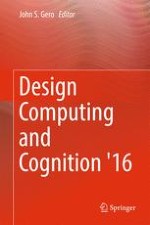2017 | OriginalPaper | Buchkapitel
Automated Best Connected Rectangular Floorplans
verfasst von : Krishnendra Shekhawat, José P. Duarte
Erschienen in: Design Computing and Cognition '16
Aktivieren Sie unsere intelligente Suche, um passende Fachinhalte oder Patente zu finden.
Wählen Sie Textabschnitte aus um mit Künstlicher Intelligenz passenden Patente zu finden. powered by
Markieren Sie Textabschnitte, um KI-gestützt weitere passende Inhalte zu finden. powered by
